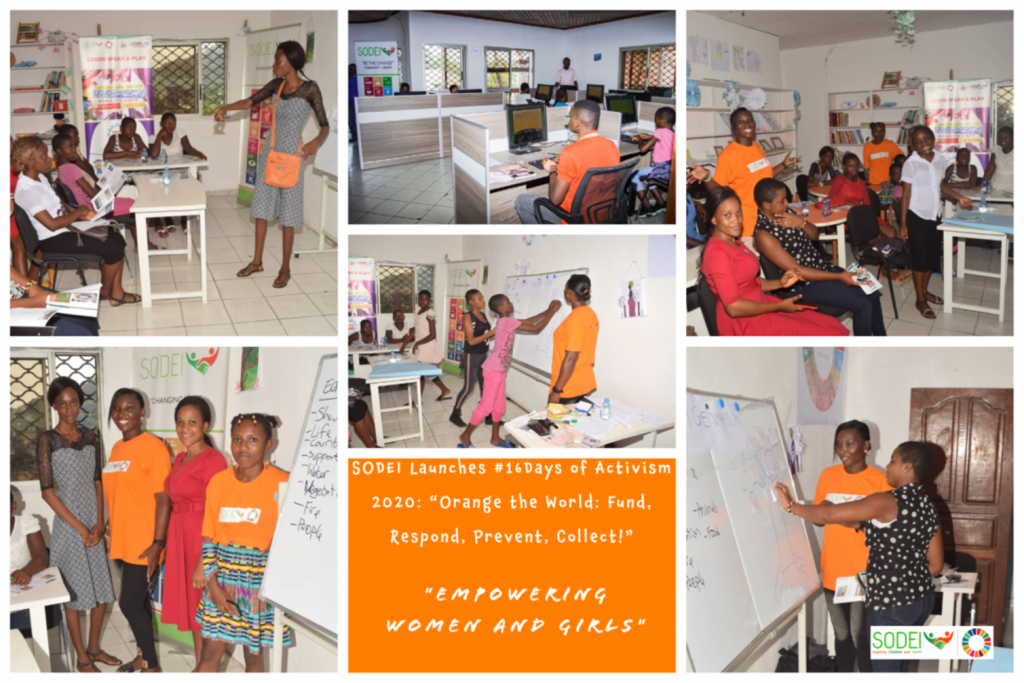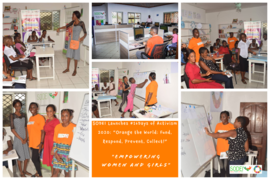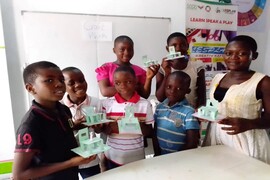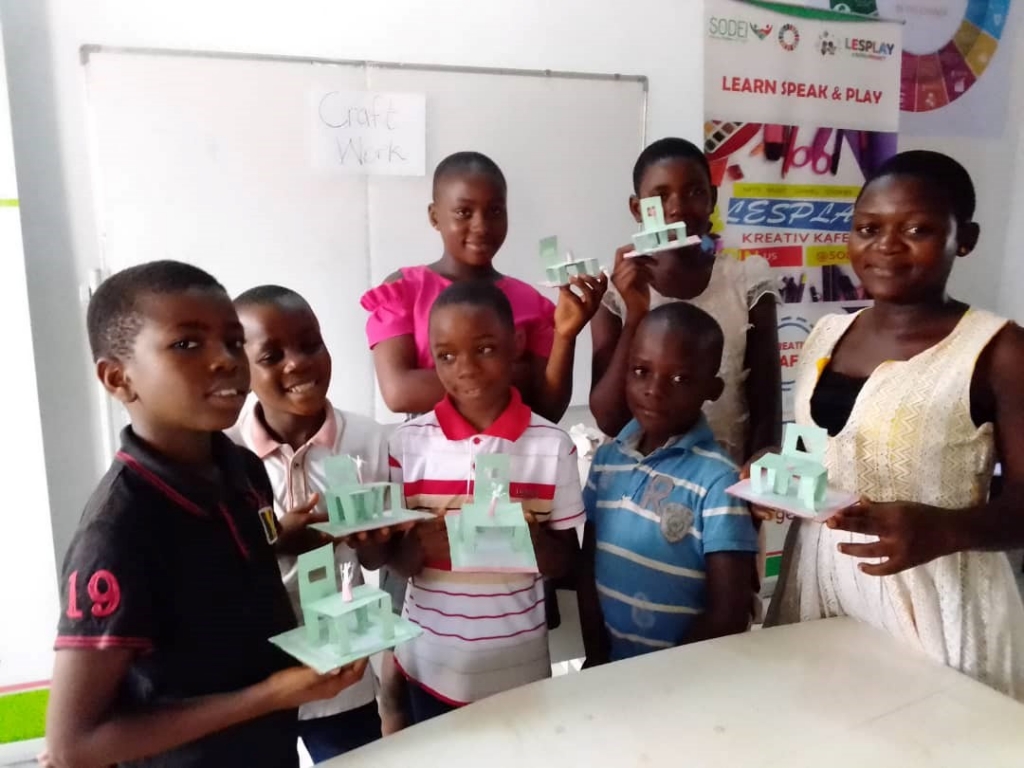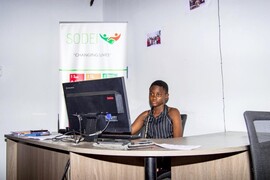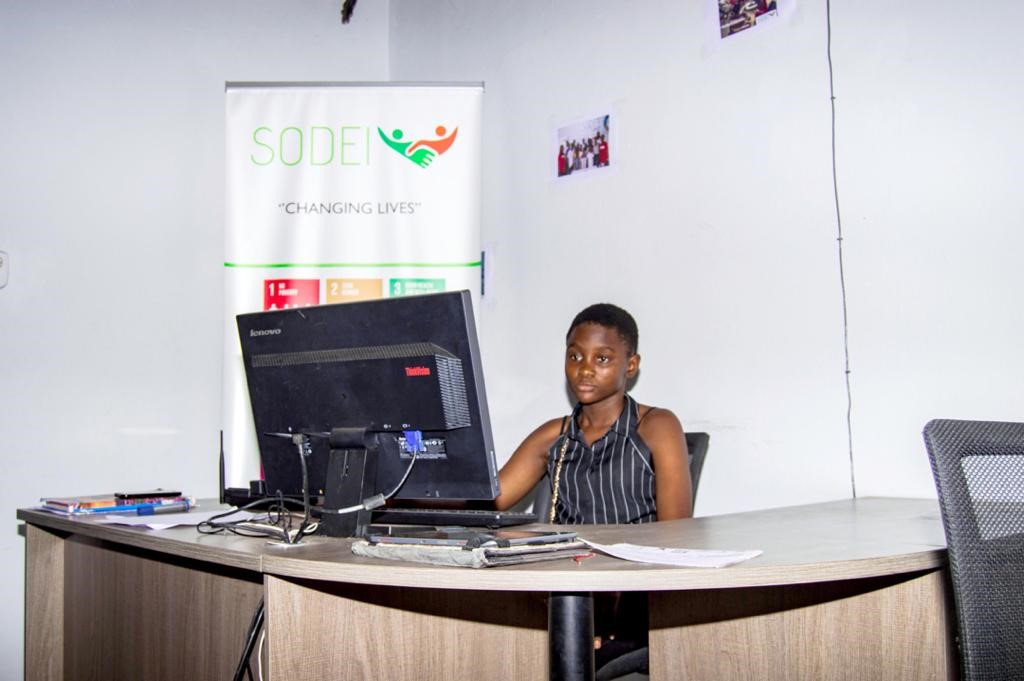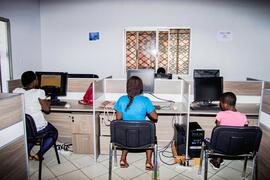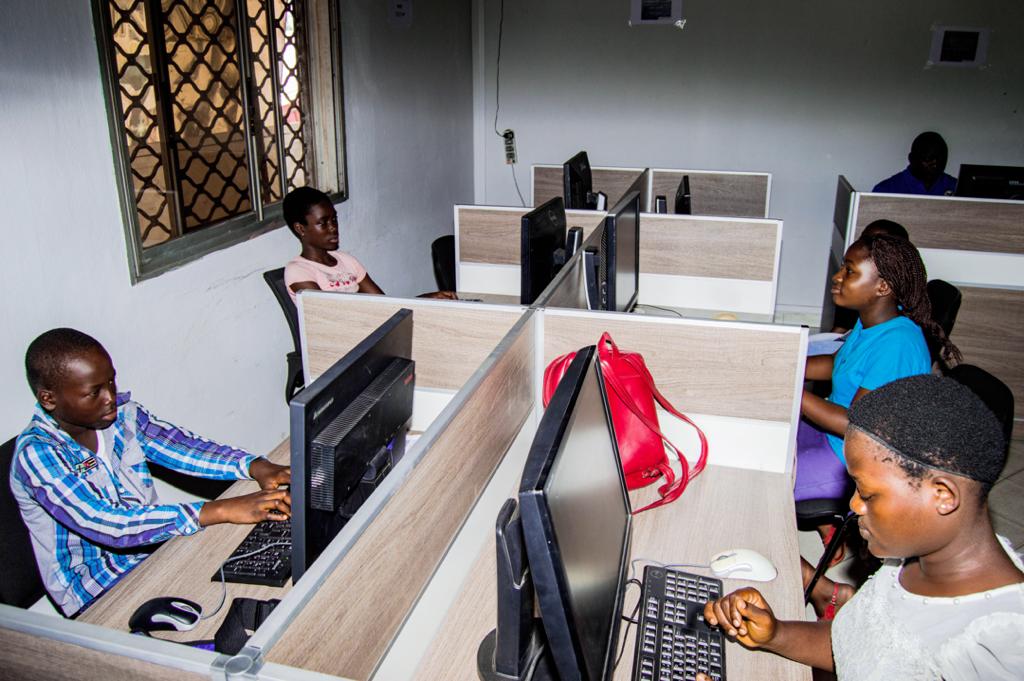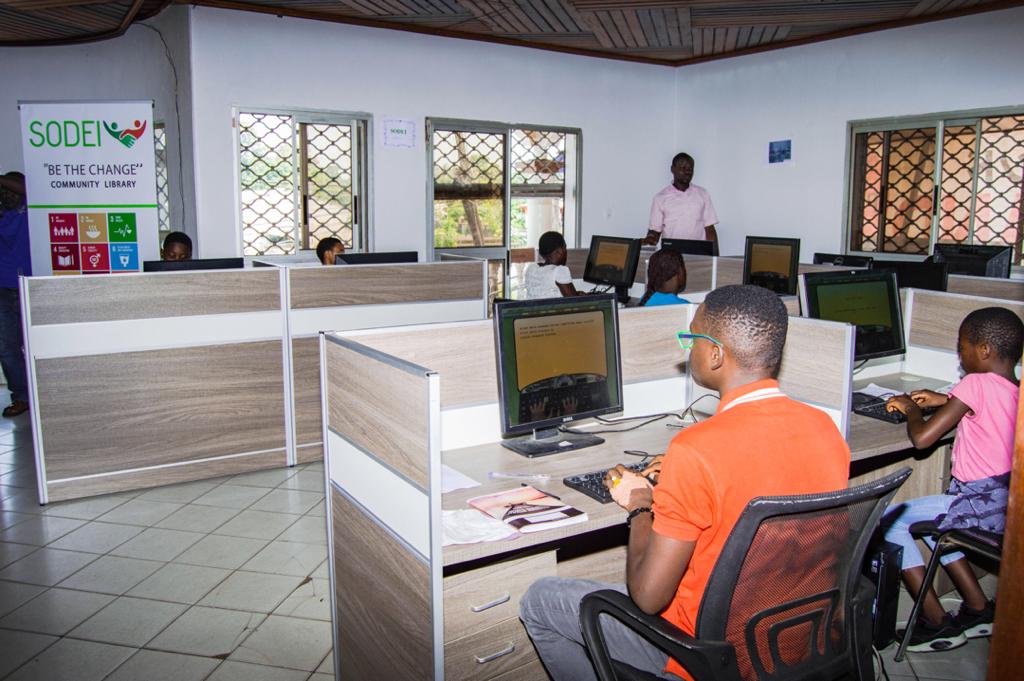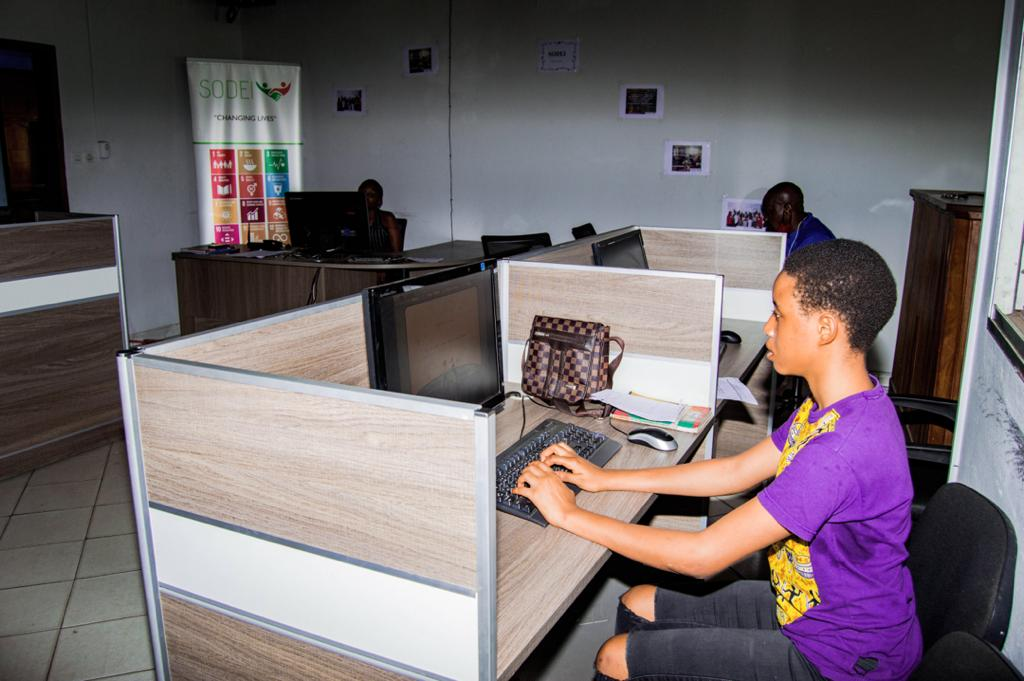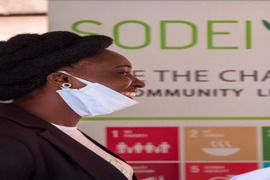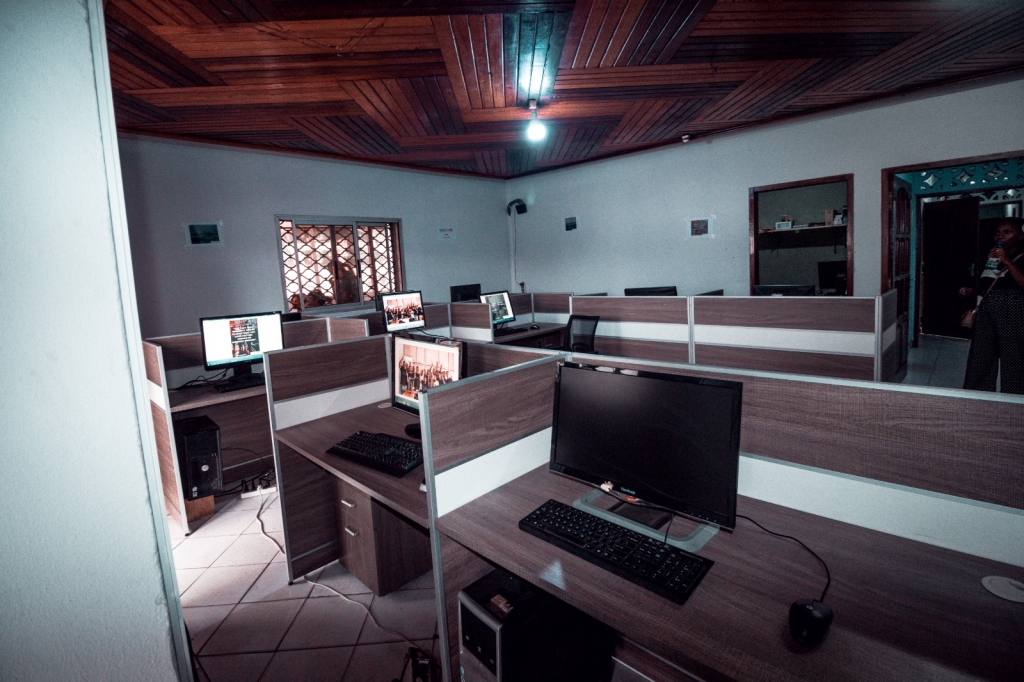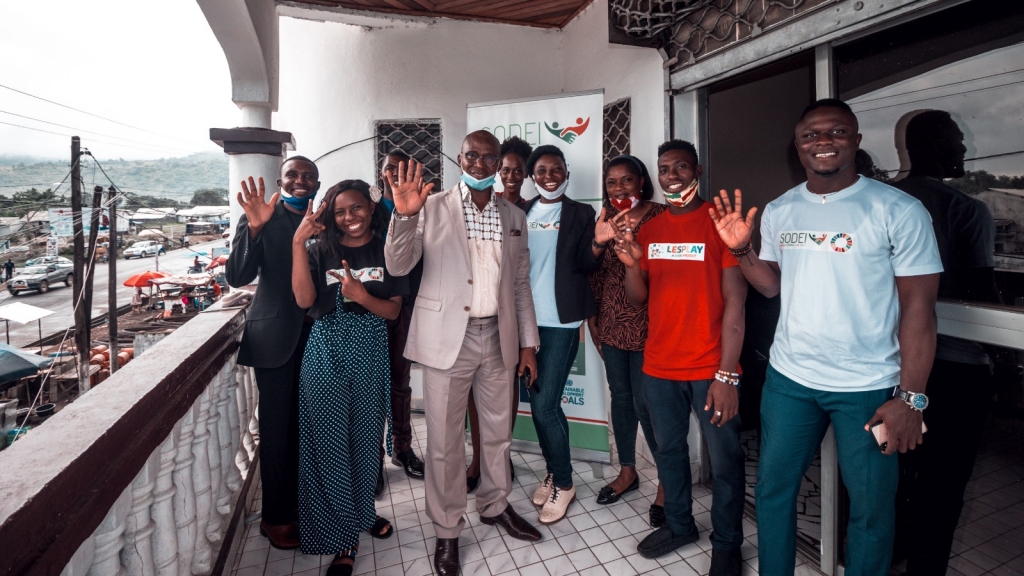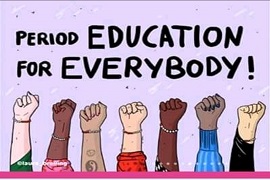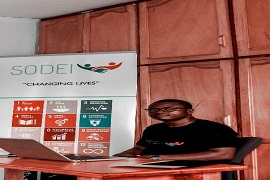The world is currently gripped by a pandemic of the coronavirus disease (COVID-19), an infectious disease that was first identified in December 2019 in Wuhan, the capital of China’s Hubei province. The pandemic has caused major disruptions around the world and we at SODEI are no different. We thought it necessary as an organization to join the world in the fight to stop the spread of the disease. So far, we have been involved in sensitization campaigns and creating awareness on the spread of the disease and measures of prevention. In addition, our organisation’s strategy involves continuing to organize limited sessions with young people with a focus on awareness about the virus, measures of prevention and mental health issues. SODEI’s communication Associate Nicole Mbiatem decided to interview the head of the organization to throw more light on the health crisis and the organization’s strategy.
Question: How has coronavirus affected SODEI as an organization?
It is a great opportunity to make a statement as the leader of an organization working for the interest of young people. Despite not being a medical expert, I believe it is important to put all hands on deck to raise awareness against the spread of the new coronavirus. As a budding organization, the COVID-19 outbreak has slowed down our momentum. Some of the work we do like the LESPLAY project involves organizing sessions with children every weekend. This is no longer the case as the sessions have been curtailed and the number of children attending has understandably reduced. Having few sessions rather than a complete halt is our own way to be part of the #LearningNeverStops campaign. Some of these children would still find themselves in crowded places and other places where social distancing isn’t respected regardless. Why not provide them instead with an opportunity to learn about COVID-19 and preventive measures? On the bright side, we also use this period as an opportunity for reflection. We continue to work behind the scenes, from our home offices to ensure that good systems and structures are in place. Together with the Program and Development heads, we are working on different policy documents and exploring ideas for funding. Hopefully, we will come out of this situation a stronger, well-established and professional organization.
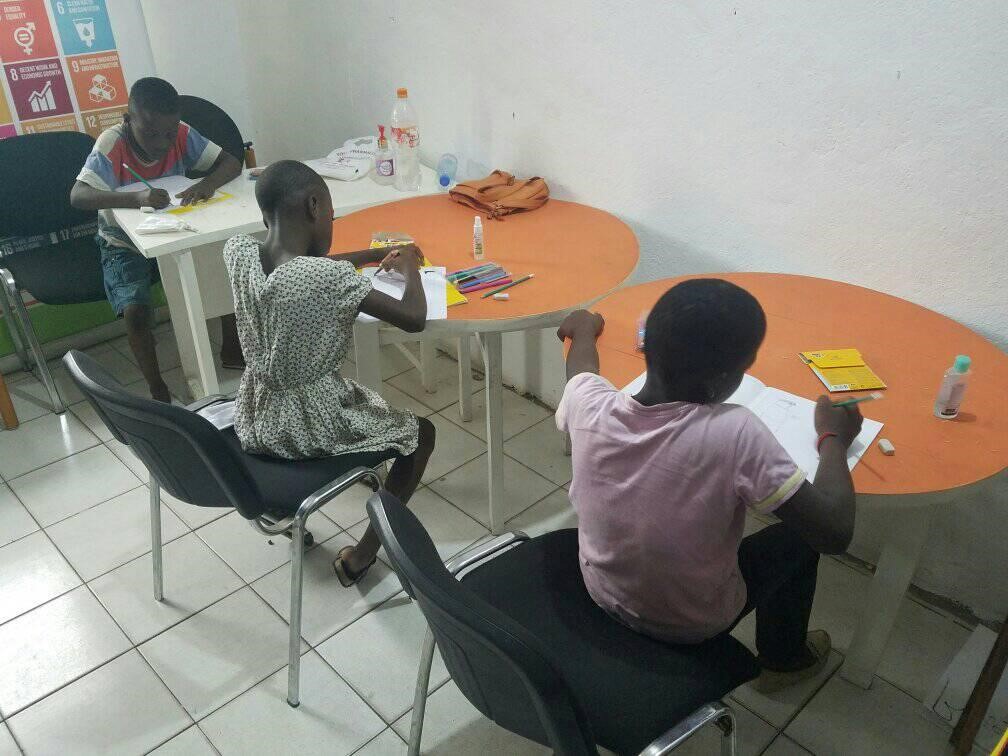
Question: What is your understanding are the measures that have been taken to prevent the spread of coronavirus?
We align ourselves with the Cameroon government’s preparedness and response strategy which include six core areas:
- Massive and generalized testing
- Immediate treatment of cases
- Active surveillance of suspected cases
- Emphasis on awareness about hygiene, social distancing, etc.
- Border control
- Encouraging reliable local expertise for a response.
In line with this strategy, the government on March 17 announced 13 measures to contain the spread of the virus including:
- The closure of all public and private training establishments of the various levels of education, from nursery school to higher education, including vocational training centres and professional schools
- Restriction of gatherings of more than fifty (50) persons
- Closure of restaurants and entertainment spots from 6 p.m.
- Regulation of consumer flows in markets and shopping centres
- The postponement of school and university competitions, like the FENASSCO and University games, etc.
As a follow-up, the government on the April 9, issued 7 additional measures which include:
- The wearing of facemasks in all open public spaces
- The local production of protective masks, medicines, and sanitizers
- The establishment of specialized treatment centres in all regional capitals
- The intensification of COVID-19 screening campaign with emphasis on already affected areas
- The intensification of awareness-raising campaign in urban and rural areas
- The continuation of activities essential to the economy
I would like to highlight the importance of local remedies such as using immune-boosting products such as lemon-ginger-garlic tonics and other natural remedies we have relied upon in the past to fight the common cold. These products with their vitamin c and anti-inflammatory benefits have been very much talked about to be helpful in slowing down the effects of the virus in the human body. However, this does not in any way circumvent the preventive measures in place, as there currently is no proven cure or vaccine against the virus.
I am particularly impressed by the daily and weekly social media outings by the Minister of Health and the Prime Minister aimed at updating on new developments, stats on new cases identified and sensitizing the public on the need for personal responsibility and adherence to the preventive measures in place. I recommend every young person to follow the official twitter of the Minister of Health @DrManaouda. However, I would also love to see the minister of health delegate other health experts in the ministry of health to do the daily updates while his administration focuses more on strategy.

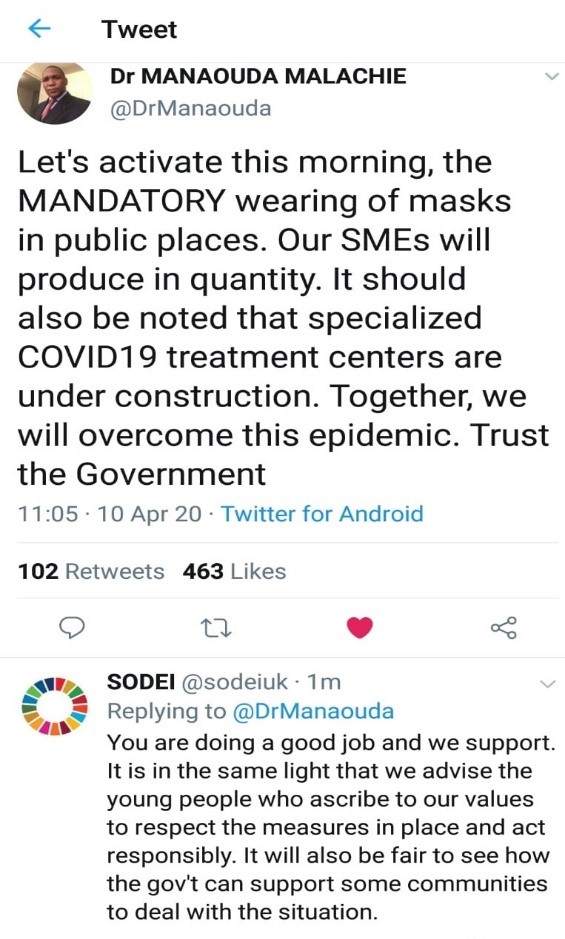
What additional measures do you think can be taken by the Government of Cameroon to prevent the spread of this virus?
I personally believe the strategies as outlined above, if accompanied by effective measures of implementation, citizen responsibility and additional government support in the form of an emergency package to the most-at-risk communities will help slowing down the spread and eventually flattening the curve. Note that the active surveillance of cases or enhanced contact tracing measure is similar to what other African countries such as Ghana have adopted, which is explained as the reason for the spike in case count. Such measures including generalized testing where the means are available, have been identified as the most effective way of containing and avoiding the spread of the virus.
You must have noticed the calls on the social media for a lockdown – some suggesting a nation-wide lockdown while others call for the lockdown of the main urban cities with the most cases, including Yaounde, Douala and Baffoussam. I believe to completely lockdown a country’s major urban and commercial cities, is a serious undertaking especially if the country doesn’t have robust social security to rely on. Some African countries including Nigeria, Kenya, Rwanda, Zimbabwe, Uganda, Mali and South Africa have imposed varied lockdown measures. Kenya, for example, has imposed nation-wide curfew limited to time – between 7 pm to 5 am daily, others like Nigeria have resorted to partial lockdown which applies only to some parts of the country countries specifically in urban cities; meanwhile, South Africa has imposed a total lockdown. Cameroon’s 6 pm curfew which applies to restaurants and entertainment spots could be said to be limited in scope. I believe at this point we can observe how lockdowns are unfolding in these African countries and apply lessons learnt in our context.
The potential challenges for imposing a lockdown include, on the one hand how lockdowns are implemented and received by the people, and on the other hand what happens to the economy. We have already observed how in some countries people are not keen to respect lockdowns and are being chased around by the police. The potential economic repercussions in African countries have already been indicated by international financial institutions. To impose a lockdown in Cameroon will mean many will go without their daily incomes. Many families who rely on informal employment will be unable to feed themselves on a day to day basis if a total or partial lockdown is imposed. This is a major challenge. I believe if the measures already in place including the restrictions on large gatherings, control of flows in markets, the use of face masks, etc, are properly implemented and yielding good results, there wouldn’t be a need for a major lockdown.
SODEI organized an informative event in Limbe on March 28, 2020. What was the motive for the event?
On March 28 we organized a session with our LESPLAY project participants to raise awareness on the existence of the virus and preventive measures. Our volunteer facilitators taught young participants on basic hand hygiene, wearing of masks, social distancing and other preventive measures. They also provided hand sanitizers for participants to take home. More importantly, young participants were taught on how to produce face masks using affordable local products. We organized a similar activity on April 11, emphasizing on the proper usage of face masks and the various types available. And on April 23 our volunteers went out on a door to door sensitization campaign educating residents of Limbe Camp on how the virus is spread and measures of prevention. Our intention is to use our modest means to sensitize young people and continue playing an active role as a youth organization.
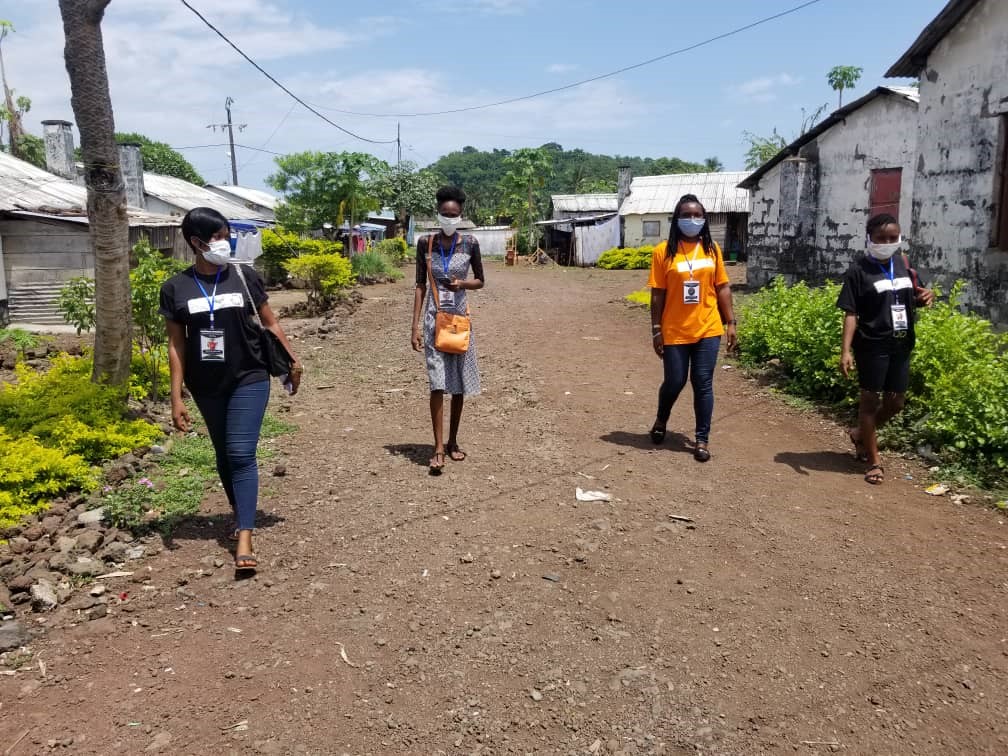
Can you tell us more about the #LearningNeverStops Campaign and how SODEI is implicated?
#LearningNeverStops is a campaign launched by UNESCO as a response to COVID-19 and the disruptive effects on education. Most governments around the world have temporarily closed educational institutions in an attempt to contain the spread of the COVID-19. According to UNESCO, these closures have impacted over 90% of the world’s student population with those from under-privileged backgrounds with fewer educational opportunities beyond school being hit the most. The #LearningNeverStops campaign is part of UNESCO’s response to support countries in their efforts to mitigate the immediate impact of school closures, particularly for more vulnerable and disadvantaged communities, and to facilitate the continuity of education for all through remote learning. Our approach is guided by this philosophy. While we are at the forefront of the campaign of sensitization in our community, we are equally interested in continuous-play and learning opportunities for young people during the period of shutdown. Amidst the fear and uncertainty young people still have the desire to play and learn. We find the need to continue engaging young people, taking into considerations all the preventive measures and guidelines recommended by the government.
What last advice can you give to young people out there about the pandemic?
I will advise everyone out there to take the virus seriously and follow the measures put in place by the government. It is no longer news today that the virus is real and affects everyone regardless of race, colour, age or social status. Yes, it has been established that the virus can have more severe consequences to older people and people with existing medical conditions. Yet we have also heard and seen fatalities in young people though in a tiny minority. I will advise young people to stay at home as much as possible and avoid crowded places. And if they have to step out, they should make proper use of face masks, to wear a face mask to prevent infection rather than for fear of the police.
